
by Ms. V. (South Korea) | May 27, 2014 | 2014, Babies, Expat Life, Family, International, Korea, Multicultural, Parenting, Relocating, S. Korea, Siblings, World Moms Blog, World Motherhood

Hello from Washington State!
I can hardly believe it’s already been three months since we arrived from Korea. We just unpacked our last boxes of books last week and are finally feeling a bit settled. The transition took much longer coming back than it did going.
Neither my spouse nor I was prepared for the culture shock we would experience returning to the country of our birth. Parenting in the States is a whole other ball game, and we are still getting our bearings.
We also underestimated how difficult it would be for our son, who had only been here once when he was 7 months old. Despite our best intentions and what we thought was good preparation, it was a hard landing for all of us.
Thankfully, things are starting to change and we’re all feeling comfortable and content and present. It’s been three months of feeling in between two places, with daily (and sometimes hourly) utterly heartbreaking questions from our little one about when we will be returning home to Seoul. And of course, now that we’re all settled, our baby is due to arrive any day, throwing all of our new comfortable routines out the window. Such is life, right? Constant change with all of us just trying to keep up with as much dignity and grace as we can muster.
I find myself filled with unanswerable questions about how life will be with a new baby. Will I have enough time with my firstborn? Will our relationship change? Will I ever have time for myself or my spouse or our relationship? Will my body recover? What will it feel like to be the mother of two? Am I ever going to find my parenting tribe here? And on and on and on.
If I’ve learned anything from the times I’ve lived abroad it’s that unknowns eventually become known and in the meantime, you just make it work. Life will be what it will be.
My husband’s paternity leave has already begun so this morning we all walked down to the Farmer’s Market. It’s one of those perfect Pacific Northwest days with sun and breeze and Mt. Rainier looming. As we drank our hibiscus tea and nibbled on some vegan tamales, all the while surrounded by the heady fragrance of freshly cut bouquets of lilacs, I felt completely at peace, perhaps since the first time since we’ve stepped off the plane.
You know what that means, right? Come on baby. We’re ready.
This is an original post written for World Moms Blog by Ms. V. who we are happy to announce at the time of this posting has given birth to her families’ new addition. Both baby and mom are doing great!
Do you sometimes feel like as soon as you become settled in a routine in life, something inevitable changes creating a new variable?
*Photo uploaded from PotoBucket from Jawandapuck
Ms. V returned from a 3-year stint in Seoul, South Korea and is now living in the US in the beautiful Pacific Northwest with her partner, their two kids, three ferocious felines, and a dog named Avon Barksdale. She grew up all over the US, mostly along the east coast, but lived in New York City longer than anywhere else, so considers NYC “home.” Her love of travel has taken her all over the world and to all but four of the 50 states.
Ms. V is contemplative and sacred activist, exploring the intersection of yoga, new monasticism, feminism and social change. She is the co-director and co-founder of Samdhana-Karana Yoga: A Healing Arts Center, a non-profit yoga studio and the spiritual director for Hab Community. While not marveling at her beautiful children, she enjoys reading, cooking, and has dreams of one day sleeping again.
More Posts
Follow Me:


by Mannahattamamma (UAE) | May 21, 2014 | 2014, Awareness, Cultural Differences, Education, Expat Life, Feminism, Girls, Government, Human Rights, Nigeria, Politics, UAE, USA, Women's Rights
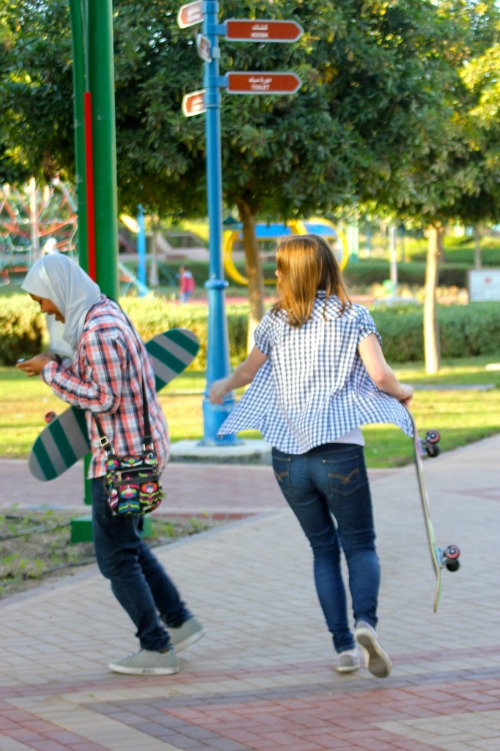
In March, I wrote a post in honor of Gloria Steinem’s birthday, in which I mentioned that when Steinem spoke at my college graduation way back in the 1980s, my friends and I had wished for a speaker who was more “relevant.” In our innocence, we believed that Steinem had won her fight; we were graduating from a women’s college and thought that fight for gender equality had been more or less won.
More than two decades later, I wish I could say that Steinem was irrelevant and that gender inequality is something we only read about in the history books.
When I wrote that post about Steinem, I was thinking about the Common Core curriculum, which relegates women’s contributions to history to the sidelines. Now, of course, we are all confronted with the horror that’s unfolding in Nigeria, and while the plight of those schoolgirls devastates me, it has become, in my mind, another instance in a long list of the ways in which groups (comprised mostly of men) attempt to score political points by seizing control of women’s lives. As an example, think about the Tea Party conservatives in the US, who prove their conservative bona fides in the United States by voting against support for Planned Parenthood, or Head Start, or universal kindergarten, or…
What is so scary about educating a girl? In the middle ages, accusations of witchcraft were often leveled against women who had amassed too much wealth or land, or who in some way differed from those around them. We teach our children that things like the Salem witch trials happened because “people didn’t know better” or because of “mass hysteria” but sometimes I wonder how far we have progressed since those days. What happens to women who challenge the status quo–or who have the potential to challenge the status quo? Don’t they still run the risk of being punished, whether literally or figuratively?
It’s funny to me now, but when I first moved to Abu Dhabi the two most obvious indications that we’d left Manhattan behind—besides the searing heat—were the adhan and the abaya-clad women: religion and covered bodies. I found the abayas more unsettling than the call to prayer, even as I sometimes envied the women their public invisibility. The longer we live here, however, my perceptions have changed so that I no longer see hijab as an automatic symbol of oppression or subjugation or second-class citizenry.
I would imagine, however, that as women here, we’ve all had moments where we’ve felt marginalized, silenced, lesser: the day I trotted down the sidewalk to get in a waiting cab and the cab driver chastised me by saying “women should not run, madam, I will wait, and you should walk.” Or when a guard at the border crossing into Oman looked over at the passenger seat where I was sitting (in long trousers) with one foot propped on the dashboard and told me “to put my foot down, sit like a lady, more properly, sit properly.” When that happened my first impulse was to laugh: surely he couldn’t be serious? But, of course, he was serious. I put both feet on the floor and looked at the map so that I didn’t toss out a few well-chosen swear words. (A general rule regardless of where you are: don’t swear at anyone, male or female, who is wearing a uniform at a border crossing.)
So yes, in that instance, I was silenced as I suppose I was by the cab driver too, who took it upon himself to offer some unsolicited advice. And yes, there is now a slight internal pause before I leave the house as I run through a kind of inner checklist about what I’m wearing: if short sleeves, a long skirt or pants, or vice versa (long sleeves, shorter skirt or shorts); do I have a shawl (equally for frigid air conditioning and bare shoulders); if I’m going to the beach, I make sure that my beach cover-up is more than a ratty t-shirt. There are days where I know I’ve failed the checklist and am too busy or late to care, but overall, I dress more modestly now than I used to and probably that’s not a bad idea: no one needs to see a fifty-year-old woman slopping down the street in cut-off shorts and a tank top.
Am I being repressed, or respectful? Does my feminism mean that I yell at the cabbie, keep my foot defiantly on the dashboard, saunter down the street in a halter top and tight jeans? Or, alternatively, does feminist politics remind us that silencing and the policing of women’s bodies happens—sadly—in almost every culture in the world, including the US? Without making light of the specifics of being female in this region, I’ve come to think of the issues facing women in this part of the world as being differences in degree, not kind, from the problems facing women in other parts of the world.
What do we, as women, do to help other women and girls find their voices–find our own? How do we create strength to silence those who would silence us?
This is an original post to World Moms Blog by Deborah Quinn in the United Arab Emirates of “Mannahattamamma.”
After twenty-plus years in Manhattan, Deborah Quinn and her family moved to Abu Dhabi (in the United Arab Emirates), where she spends a great deal of time driving her sons back and forth to soccer practice. She writes about travel, politics, feminism, education, and the absurdities of living in a place where temperatures regularly go above 110F.
Deborah can also be found on her blog, Mannahattamamma.
More Posts
Follow Me:


by Sarah Sensamaust | May 14, 2014 | 2014, Africa, Being Thankful, Cultural Differences, Expat Life, Family, Living Abroad, Motherhood, Parenting, Relocating, Stress, World Moms Blog
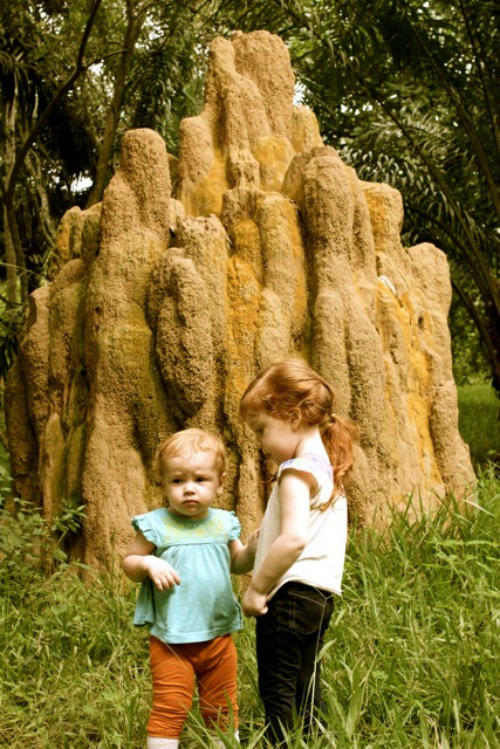
That’s a termite mound, not a rock!
I’ve reached a time in my life when it’s easy to be anxious about so many things. I think that most mothers of small children, whether living abroad or not, are often plagued by the anxiety bug.
For the last six years, my family and I have lived in Congo and we’re moving away in just a few weeks. I find myself thinking back to all those worries, big and small, that I had about raising two kids in the proverbial “heart of darkness.”
So as an exercise of gratitude and reassurance before we begin our next African adventure, I’ve been reflecting on all the what-ifs –real and imagined – that never came true.
Those mosquito bites never led to malaria.
There were no broken bones, stitches or other ailments that couldn’t have otherwise struck us in the United States.
Getting stopped by the police was never more than a hassle and a good story.
Our girls made it to and from school every day without incident.
We never ran out of quality disposable diapers, Sensodyne toothpaste, or anything else we hoarded from home.
My shoes held up.
Every fever went away without too much suffering.
Nothing was ever stolen (that we noticed).
No one was bitten by a snake or spider and a few worms in the feet were no big deal.
The termites never swarmed and carried our children away.
The vehicles always returned to their respective lanes before a head-on collision.
No one was lost in an angry mob.
We never got sick from all that “questionable” food.
That crazy Congo lightning never came through our window and zapped me in my bed.
Both of my pregnancies were picture perfect.
The electricity always came back on.
The water always returned.
The internet was always repaired.
The planes did not crash.
We made friends. Good, lifelong friends.
And no one is worse for the wear.
As infinitely grateful as we are for all these things that never happened, we’re even more so for everything that did. We had two beautiful children, our family learned a new language and we reached far out of our comfort zone. We will forever be connected to the culture and people we grew to love in Congo.
I hope that the next time everyday stressors take over, I’ll be able to stop and think about this list and remember more often than not everything is alright in the end.
What things have you worried about that never ended up happening?
This is an original post written for World Moms Blog by Sarah Sensamaust. You can find Sarah blogging with Jill Humphrey at Mama Congo.
Photo credits to the author.
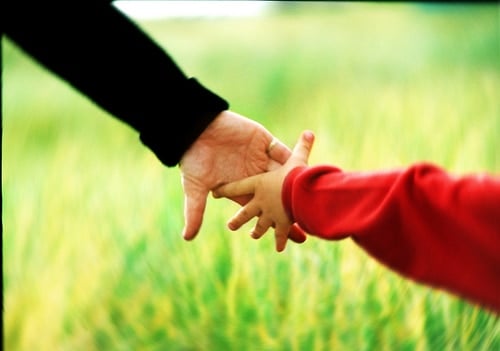
by Shaula Bellour (Indonesia) | Apr 3, 2014 | 2014, Expat Life, Indonesia, Kids, Living Abroad, Parenting, Safety, Shaula Bellour
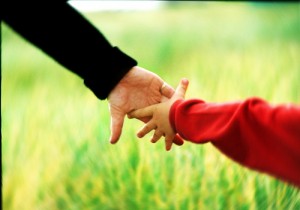 Recently, while checking out at the grocery store my 6-year old daughter wandered a few aisles down to chat with someone while she waited. In child-friendly Indonesia, this is pretty common.
Recently, while checking out at the grocery store my 6-year old daughter wandered a few aisles down to chat with someone while she waited. In child-friendly Indonesia, this is pretty common.
Though my son is generally more wary of people, my daughter is naturally outgoing and enjoys “making friends” wherever we go – usually chatting away in English about school, her friends, her cat, etc.
My son soon went over to join her while I finished paying. As I started to wheel the shopping cart in their direction, I looked up to see that my daughter was giving this man a giant hug around the waist.
My stomach lurched.
Somehow we’d missed out a key lesson from Stranger Danger 101.
We quickly left the store, parked the cart on the sidewalk outside and discussed the fact that it’s not appropriate to hug or touch people that are not our friends or family. I left it at that for the moment, yet days later I found myself still reflecting on the experience and how cultural variables have shaped my thinking.
Growing up in the US, child safety rules were ingrained from a young age, including the widely used “stranger danger” warning that is intended to keep children safe from adults they don’t know.
In Indonesia, it is not so black and white. Typical rules such as “Don’t talk to strangers” can be tricky, if not impossible. Jakarta dwellers are extremely friendly and it is common to talk with and be approached by strangers wherever you go. For me, these kindly interactions are one of the joys of living here and it’s often the presence of my children that sparks the most interesting exchanges.
Another rule, “Don’t accept gifts from strangers,” can also be difficult to avoid. My children have been offered sweets by security guards and local treats by waiting area strangers. We may not always partake of these offerings, but there are times when it would be impolite to refuse them.
Children in particular attract a great deal of attention in Indonesia and strangers frequently pinch cheeks, touch hair and even take photos. My kids don’t usually appreciate this, but it can be a good opportunity to explore personal boundaries and what is comfortable or not.
Not long ago, an adoring Grandma-type reached out to stroke my daughter’s hair while she was washing her hands in the airport restroom. My daughter recoiled and then shouted “NO! I don’t like it!” at the top of her lungs. Although she probably shocked the small tour group of elderly ladies, her boundaries were clear.
In terms of larger safety concerns, it is interesting to consider how perceptions of danger in different contexts – and perceptions of safety – influence my parenting.
The recent article by Hanna Rosin,”The Overprotected Kid,” raises some important points about these perceptions:
“When you ask parents why they are more protective than their parents were, they might answer that the world is more dangerous than it was when they were growing up. But this isn’t true, or at least not in the way that we think. For example, parents now routinely tell their children never to talk to strangers, even though all available evidence suggests that children have about the same (very slim) chance of being abducted by a stranger as they did a generation ago. Maybe the real question for sharing is, how did these fears come to have such a hold over us? And what have our children lost—and gained—as we’ve succumbed to them?”
Like any parent, I want my children to be safe. However, I don’t want them to grow up in an atmosphere of fear and mistrust. To me, rather than emphasizing stranger danger, it seems far more useful to instill confidence and teach them to recognize and avoid certain situations, rather than people in general.
I hope that I can equip my children with the skills, knowledge and strategies they will need to protect themselves and be safe but not scared. Obviously, it’s an ongoing process but one that is particularly important for our family as we move between countries and as our children grow up and encounter new situations.
How do you navigate cultural norms and perceptions related to child safety?
This is an original post for World Moms Blog by Shaula Bellour, mother of twins and now living in Indonesia.
Photo Credit: Wilson X . This image holds a Flickr Creative Commons attribution license.
Shaula Bellour grew up in Redmond, Washington. She now lives in Jakarta, Indonesia with her British husband and 9-year old boy/girl twins. She has degrees in International Relations and Gender and Development and works as a consultant for the UN and non-governmental organizations.
Shaula has lived and worked in the US, France, England, Kenya, Eritrea, Kosovo, Lebanon and Timor-Leste. She began writing for World Moms Network in 2010. She plans to eventually find her way back to the Pacific Northwest one day, but until then she’s enjoying living in the big wide world with her family.
More Posts

by Michelle Lewsen | Mar 31, 2014 | 2014, Being Thankful, Expat Life, Family, Oceania, South Africa, World Moms Blog Writer Interview, Writing
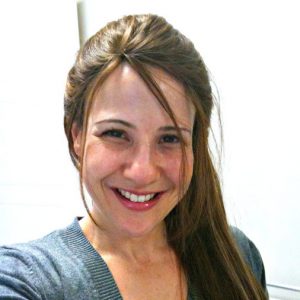 Where in the world do you live? And, are you from there?
Where in the world do you live? And, are you from there?
Asking me where I am from is never going to get you a short answer. I was born and raised in Johannesburg, South Africa where I had the most idyllic of childhoods. South Africa is a magical place with a breathtaking natural landscape to rival anywhere in the world. It’s also a place full of the most vibrant, colourful people who will welcome visitors with a wide grin and open arms.
It was there that I learnt about tolerance, diversity and how to love fellow members of the human race. Nelson Mandela called South Africans the Rainbow Nation and the world thinks this is because of the country’s diversity of race. For me, it goes deeper – this Rainbow Nation refers to a culture of people with vibrantly coloured hearts.
As you can imagine, it was with great sadness that I left South Africa in my twenties and migrated to Western Australia. In the fifteen years that I’ve lived here, I have learned that Australia is not terribly different from South Africa. Here, too, you will be welcomed with a grin, a cold beer and the notion that “it’ll be right, mate!”
I count myself as one who is truly blessed to have lived two lives in such beautiful places. So here I am, Michelle Lewsen, a South African Australian. Pleased to meet you!
What language(s) do you speak?
Amazingly, even though I was raised and schooled in a country that has eleven official languages, I speak only English with any fluency. I can speak a little Zulu, a little Sotho and a little Afrikaans but not enough – it’s one of my regrets.
When did you first become a mother?
I became a mother eleven years ago and have three children who fascinate me daily with their individual idiosyncrasies, their wit and the fact that these beautiful little human beings somehow are mine.
Are you a stay-at-home mom or do you work?
I am beyond fortunate to be able to be a stay at home Mum, which works perfectly with my writing.
Why do you blog/write?
Conversely, my writing is what keeps me from going stir-crazy at home! Nobody tells you just how lonely a house full of children can feel and I am so grateful for the amazing people I’ve met through blogging and writing – people who began as Twitter handles and Facebook statuses and have become some of my dearest friends.
My writing is not only for my own sanity, but because I believe I have something to offer the world. I find it incredibly rewarding to wake up in the morning and read comments on my blog that say I’ve helped someone else through their tough day. I write because I can’t not write. Simple as that.
How would you say that you are different from other mothers?
I am a Mum, just like every other Mum out there. We all love our children, we all scream and lose the plot sometimes, we all struggle through the laughter and tears and tantrums and achievements and disappointments and fears and joys. I am no different.
What do you view as the challenges of raising a child in today’s world?
This world we are raising our kids in is a scarier place, for sure. The internet brings new friends but it also carries the risk of inviting some not-so-nice people into our children’s lives. The internet is the single greatest gift our generation has given our children’s generation and it is also the greatest curse. My biggest fear as a mother, absolutely, is the idea of my children being hurt. But then, I’m no different from you, am I?
How did you find World Moms Blog?
How did I find World Moms Blog? In July 2013, I was honoured as a Voice of the Year at BlogHer ’13 and I traveled to Chicago for the conference. In a pre-conference session, Jennifer Burden stood up and introduced herself and World Moms Blog and asked a question. She was so eloquent
and so interesting, I had to hunt her down and introduce myself. World Moms Blog fascinated me because of this belief I have that no matter where we are from, a Mum is a Mom is a Mama is an Imma is a Mother. We are all the same.
Thank you for inviting me to be a part of this incredibly talented community of writers. I am honoured and look forward to getting to know you all.

by Mannahattamamma (UAE) | Mar 19, 2014 | 2014, Computers, Cultural Differences, Culture, Education, Expat Life, Government, Homeschooling, Living Abroad, Multicultural, Older Children, Politics, Religion, School, Social Media, Traditions, UAE, USA
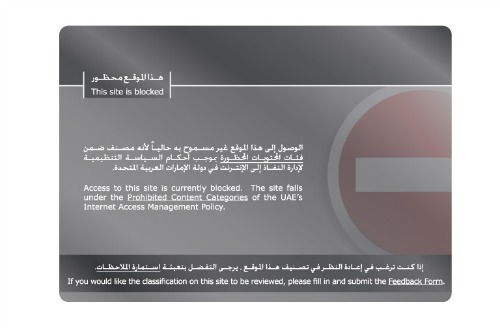 I always swore I would never home-school my children. I know many people do, and do it quite successfully, but I’m awfully fond of the quiet that descends on my house after they’ve tromped off to school. If that tromping were only happening from the bedroom to, say, the kitchen table, I think I might simply lock myself in the bathroom and never come out.
I always swore I would never home-school my children. I know many people do, and do it quite successfully, but I’m awfully fond of the quiet that descends on my house after they’ve tromped off to school. If that tromping were only happening from the bedroom to, say, the kitchen table, I think I might simply lock myself in the bathroom and never come out.
But as so often happens, my vow has collided with reality and I have found myself, in recent weeks, trolling home-schooling websites in search of teaching resources. My kids are now 9 (nine and a half, he would say indignantly) and 13; they go to a British school here in Abu Dhabi. That means they’ve spent a lot of time learning various English kings and queens, although they can’t recite them all in order. They study “maths,” and do prep rather than homework; they study English history and geography; they read mostly English writers in their literature classes. In addition to all those Anglo studies, they take Arabic language classes four days a week and once-weekly class called “Islamic Studies.” The Arabic classes are mandated by ADEC (Abu Dhabi Education Council) and I have to say, I’m much more interested in my kids learning Arabic than I am in their ability to name all the English kings and queens.
Having the boys be in an English system has been a learning curve for all of us. We’re learning two languages, actually, Arabic and, well, English: the boys now live in a world where things are “grey,” luggage goes in the “boot,” and we put garbage in the “bin.”
I’m not considering a dabble in the home-schooling system in order to beef up my boys’ appreciation of the Queen’s English, however. My kids, like every schoolchild in the country, have a curriculum that is at least in part determined by the UAE government, and that means there are things that aren’t supposed to be taught. I live in a place where censorship happens and where, unlike the States, the policies cannot be overtly challenged in the courts. So, for instance, in the States if you live in a town where they want to ban the Harry Potter books, you can take the school district to court. Not here.
We had to sign a permission slip so that our older son could get the science textbook that included the chapter on reproduction (with pictures of, you know, the embarrassing bits); his Latin class translates vinum as … grape, not wine. These are relatively small annoyances, although of course they are far from ideal.
There are, however, more serious concerns in terms of what shouldn’t be included in history courses and literature courses, and that’s where I find myself trolling the home-schooling sites for resources. The Holocaust can’t be taught here; Israel and Judaism are not supposed to be mentioned here; communism isn’t supposed to be discussed; evolution isn’t supposed to be taught; and the list goes on. Sometimes it feels as if we’re living in some kind of Bible-thumping town in the rural U.S and I realize, yet again, that fundamentalism can be seen as a global phenomenon that differs only in the nature of its prohibitions: the fear that motivates the prohibitions stays constant.
Before you leap to any conclusions, please know that the Muslim families I know are as frustrated by these government-issued edicts as are the non-Muslim families and many of us have talked together about what we can do to help our children gain a full picture of the world, regardless of what the government says. So it is that what in some contexts (living in Manhattan, for instance) would be a purely theoretical discussion has become in our household, a very pragmatic series of conversations.
Think about it: how would you talk to your kids about censorship? Is censorship always bad? Think about your children, if you have them, and the internet: are there sites you say they can’t see, or have you put a filter or something on your computer to prevent certain kinds of access? Do we agree that there is such a thing as “good” censorship? (Because of that whole teenage-boy-surfing-the-internet thing, I see a (slight) upside to living in a “nanny state.” I am fairly sure that if he wanted to look, my son wouldn’t be able to find basic porn–not to say that if he really wanted to dig around he couldn’t elude the censors, but at this point, I think his porn-directed vocabulary is still too limited to get around the government blocks. I guess we file that under “thank goodness for small favors,” right? )
My husband and I are both professors, and so we are able to bolster and supplement what isn’t happening in school, but we are also having a lot of conversations with our kids about censorship, politics, and the necessity of thinking about things in ways that are different from how we might think about them. We point out that the UAE isn’t Saudi Arabia; there is no Taliban here; the country is not governed by a theocracy of any sort. We know Jewish families who live here; I know gay couples who live here; a Mormon family lives next door to us. I see people on the beach in the scantiest of scanty bathing suits.
Living here means coming to term with nuance, with ambiguity, with living in a world that is organized around “both/and,” rather than “either/or.” The country is progressive and conservative; censorship is a problem that has a context; learning happens as much from what is not there as it does from what is there. It’s complicated and let’s be honest — no nine year old, no thirteen year old—and very few adults—really likes ambiguity. After all, if there is no “in-between” answer, life becomes much easier, doesn’t it?
No, of course I’m not happy that my kids have a biology textbook with the word “pig” marked out. Of course, I’m also not pleased that the Anglo-centric curriculum also neglects things like the US Civil War, other than in the most general sense. But I will say that I think it is, and will continue to be, a powerful learning experience for my children (and us) to have to confront and think about what it means to live in a place where the government attempts to exert such extensive control. I like to think that, paradoxically, these attempts at censorship will make my children more open-minded adults.
Have you ever been confronted with censorship? How have you dealt with it?
After twenty-plus years in Manhattan, Deborah Quinn and her family moved to Abu Dhabi (in the United Arab Emirates), where she spends a great deal of time driving her sons back and forth to soccer practice. She writes about travel, politics, feminism, education, and the absurdities of living in a place where temperatures regularly go above 110F.
Deborah can also be found on her blog, Mannahattamamma.
More Posts
Follow Me:


















